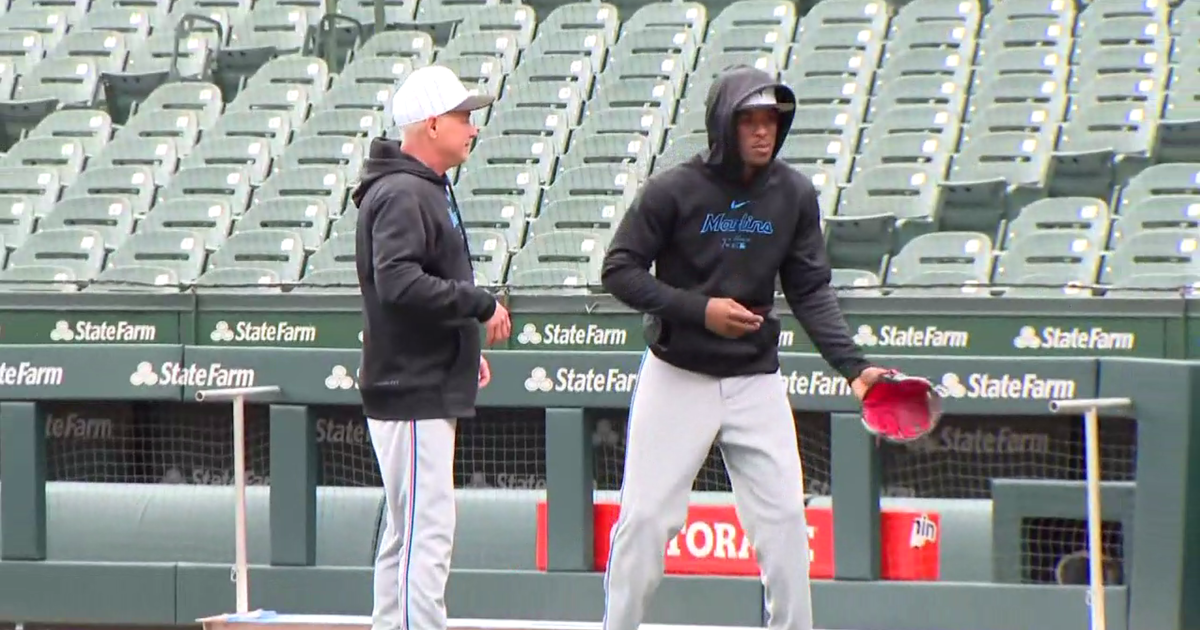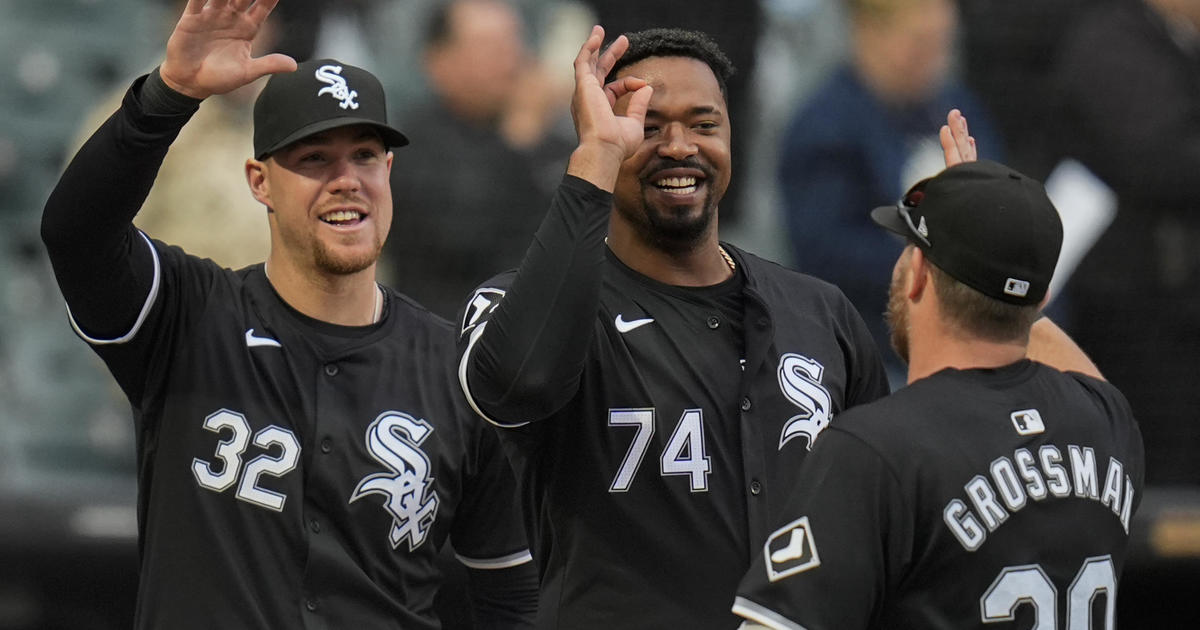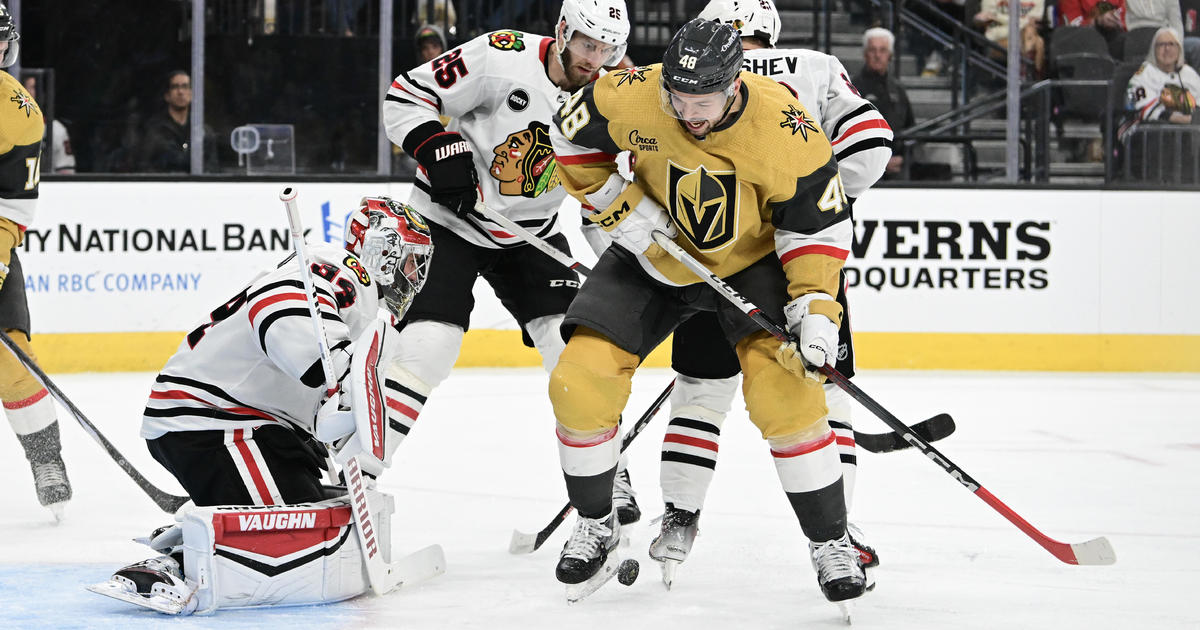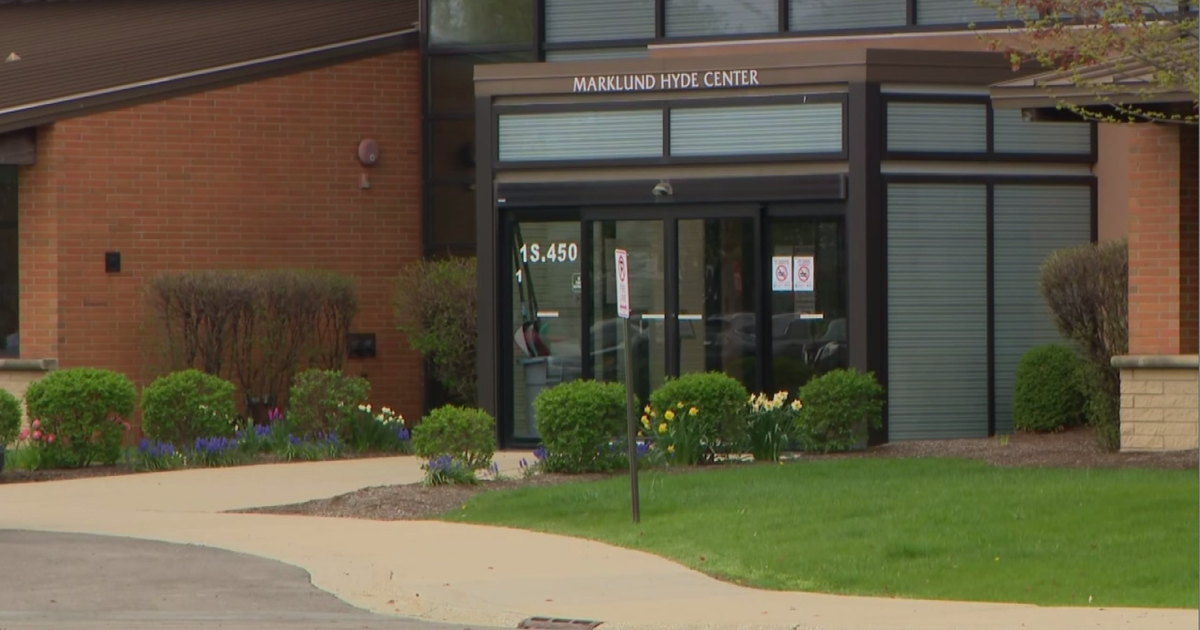Angi: What The Abreu Signing Means For The White Sox
By Cee Angi-
(CBS) For months, the White Sox have refused to comment much about their plan of attack for the offseason.
Week after week, all that Rick Hahn would say was that the organization was committed to developing talent, the draft, international signings, and free agents. Given the menu at the Rebuilding Restaurant and asked what he liked best, he said, "Everything," which is the same as not answering.
Well, now we've got something concrete filed under "international signings."
On Thursday night, the White Sox agreed to a six-year, $68-million deal with 26-year-old first baseman Jose Abreu (pending physical). The deal for Abreu, who defected from Cuba in August, is the highest first-time contract for an international player in baseball history and, as Ken Rosenthal breathlessly reported during ALCS Game 5, is $12 million more than Yu Darvish and $26 million more than Yasiel Puig got last year.
Admittedly, there's a lot to unpack here, both in terms of who Abreu is, what he might mean to the White Sox, and what his arrival portends for the rest of the roster.
First, it may seem surprising that a team that just shed payroll by trading Alex Rios and Jake Peavy would be back to spending money so quickly, but instead of being tithed to middling veterans, that money is now going towards a young player whose upside is already being compared to that of the best sluggers in the game. Still, this move did catch many off guard given how quickly it progressed from the faint rumblings of a rumor to a final deal in just a few short weeks. We're less than three weeks removed from the final pitch of the season, and the Sox have already done more than they did all of last offseason.
Abreu, who stands 6'3" and weighs 240 pounds, spent eight years playing in the Cuban Serie Nacional league. He played his first games at 17, and while he didn't do much at first (and didn't make the cut for the 2009 World Baseball Classic), in the past three seasons, he matured into one of the best hitters in the league. In the 2010-11 season he hit .453/.597/.986, led the league in slugging, and set a league record for home runs with 33 in just 66 games. In his final season in Cuba, he was an All-Star first baseman, continued to hit for power, and led the league in slugging and home runs. From the moment he defected from his home country this August, teams have been salivating over the possibility of adding him to their roster, but it was the Sox who emerged as the highest bidder in the end.
No doubt about it, the Sox have committed a hefty sum of money to Abreu, more than any team has ever paid for a first-time contract before. We could quibble about the dollars and years for hours, but it would be a waste of time as it's premature to make any kind of judgment about the deal the Sox made with Abreu. It could be several seasons before it's clear if the Sox overpaid, underpaid, or made a fair deal. Having said that, while the deal can't be defined as good or bad, it can be viewed skeptically given the sizeable outlay for a relative unknown, though $11million per season isn't cumbersome enough to prevent the Sox from making other deals.
Back in 2008, Michael Lewis (of Moneyball fame) wrote an article for Vanity Fair about baseball in Cuba entitled "Commie Ball." In it, Lewis outlines just how murky the information we have about Cuban ballplayers is given that it's virtually impossible for scouts to get the sort of access needed to formulate a detailed scouting report and the media coverage is more about opinions than reporting. There are also the added complications of a lesser caliber of talent than is found in the States, a different ball, and a shorter season.
While a lot of what is known about Abreu from his Cuban years is second-hand, scouts did have an opportunity to watch him play during the World Baseball Classic this season, and he did not disappoint. Abreu was 9-for-25 with three home runs, including a grand slam off of China's Yu Liu. Abreu, ranked fifth in slugging for players that appeared in five or more games in the WBC. There was also another opportunity for organizations to see Abreu during private workouts in recent months, and there are also videos of him playing that have circulated (though nothing quite as fun as Yoenis Cespedes' video).
Though it's been difficult to get a clear read on him because of those extenuating factors, there is one universal consensus: Abreu possesses serious raw power, and will be a slugger first-- and everything else second. There have been a lot of comps thrown around, ranging from Miguel Cabrera to Ryan Howard. While there's no guarantee that he turns out to be a player of that caliber, the Sox have bet $68 million that they've just signed the type of hitter who will hit 30-plus home runs a year for the next six seasons.
Unlike other recent Cuban defectors like Puig and Cespedes, Abreu isn't a speedy or toolsy player—he's just a bat. He'll likely be a below-average defender and a slow base runner, and investing in one ability—even one as important as power hitting—is a cause for some concern. Abreu's success will be determined by how quickly he can figure out major-league pitching since he'll face higher velocity and better breaking pitches than he did in Cuba. If he can adapt, he's got the power to be lethal. If he can't do it quickly, well, he'll have plenty of time to work on it as the Sox continue to rejigger their lineup in the coming seasons.
Abreu will start off as a first baseman for Sox, but the reason that he landed in the American League in the first place is because there are some concerns about him as an everyday position player given his lack of speed and defense, which could force him into the designated hitter role after a season or two. The Sox will need a designated hitter starting in 2014 since Adam Dunn will be a free agent and has zero change of being re-signed unless he miraculously starts hitting like Babe Ruth.
That might also change what the Sox considering doing with Viciedo, and in the short term could make for some awkward defensive alignments on a club already hurting for good gloves. Viciedo shouldn't be the everyday option in left field going forward due to his own defensive shortcomings, but if he can find some of the offensive power that has been promised since he defected from Cuba back in 2008, he could be a serviceable option at first should Abreu not be up for the challenge.
Instead of splurging on first base, the White Sox could have probably patched together a short-term fix using a combination of Paul Konerko, Adam Dunn, and even Dayan Viciedo, but the decision to sign Abreu shows that the organization is committed to turning its back on the past and acquiring players who will move the team forward even if it means saying goodbye to some cherished old hands. This move likely means that Konkero has played his last games with the Sox, and no doubt that will be painful for his most devoted adherents, but perhaps they, like Hahn and company, will be at peace with that decision if it means a formidable replacement in his stead.
On the surface, the addition of Abreu might seem like the White Sox have reneged on the slow-and-steady retooling plan Hahn's vague comments seemed to have suggested in favor of quick-fix free agents, but there's no reason to expect a big signing like this every month from now until spring training. The Sox will still desperately need a catcher and potentially another infielder or outfielder depending on what they decide to do with the arbitration-eligible players, but those positions may get filled by marginal free agents, through trades, or by players making the league-minimum in order to offset some of the spending in this deal.
What's lost in all of the excitement over this acquisition is that this is Hahn's first big free agent signing as general manager. While he's undoubtedly received an earful of advice from Kenny Williams along the way, this signing belongs to the Hahn era and it will be the first one in which the outcome will be pinned to him instead of being filed as, "One of those bad deals by KW."
Abreu is just the first of many new faces that could and should soon be part of this organization. While the White Sox's offseason might have just peaked in terms of signing impact players, this signing marks the first attempt to erase the afterburn of a miserable 99-loss season. Whether he turns out to be a great player or a total failure, the organization has presented its fans with a player of real potential, not the million-to-one Hail Mary kind of potential that pleads for Viciedo to find a position or Courtney Hawkins to learn how to hit .200 in A-ball, but an upside that is reasonably within reach. It might work out, it might not, but it's a change for the better, and one long overdue.
Cee Angi is a freelance sportswriter, whose work has appeared at Baseball Prospectus, The Platoon Advantage, The Classical, and is currently one of SB Nation's featured columnists covering Major League Baseball. Follow her on Twitter @CeeAngi and read more of her CBS Chicago blog entries here.




